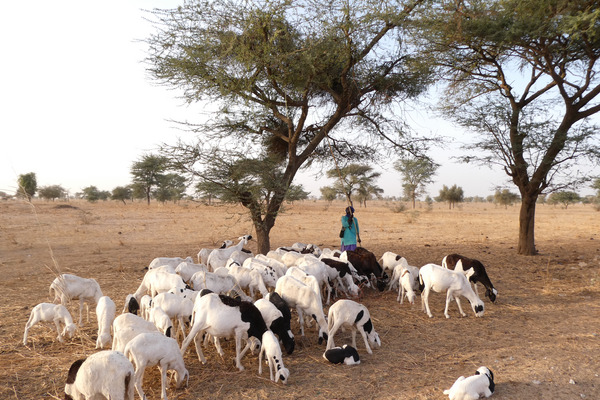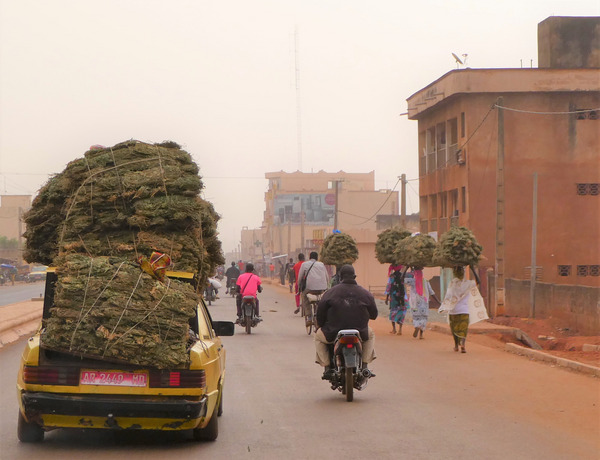Jakob Thiam is a Bachelor student at the University of Kassel. From February to June 2022, he stayed in Senegal to collect data for his Bachelor thesis within the frame of WP6. The aim of his Bachelor thesis is to conduct first feedback rounds in Senegal on the applicability of a pilot ration calculator developed by the section Animal Husbandry in the Tropics and Subtropics, so as to further elaborate it according to the needs of interested user groups. In this context, he collected different parameters through a series of qualitative interviews with local advisory services, NGOs, veterinaries and representatives of livestock farmers. During his stay in Senegal he closely cooperated with ISRA, who helped him to coordinate the work, particularly in the study areas of Dahra-Djolof and Niakhar.
The close interaction with a large variety of partners in different settings allowed to define the status quo and use context for a successful introduction of the feeding tool in Senegal, but also in the other partner countries, Mali and Burkina Faso. The interviewed stakeholders particularly pointed to the necessity of an “easy to use tool”, which is able to bundle the parameters required in livestock feeding in a Senegalese context for a more efficient use of feeding resources.
Quote from Jakob Thiam about his experiences
“Through my research stay in Senegal, I learned a lot about animal husbandry and the challenges livestock keepers face, particularly in the context of climate change, which has a direct impact on their livelihoods. I am confident that the feeding tool will contribute to a better use efficiency of feed for many livestock keepers in the future to improve their livelihoods in a sustainable way. The next step in my work will be to test the tool with pilot partners over a longer period in Senegal, to see how well the tool performs under real conditions. Overall, I have the feeling that the project and my work have an additional value to the people it addresses.”
Further information
Written by: Sophie Graefe and Jakob Thiam, Team UKAS, Project Scientist at University of Kassel, Germany




 tap and then scroll down to the Add to Home Screen command.
tap and then scroll down to the Add to Home Screen command.